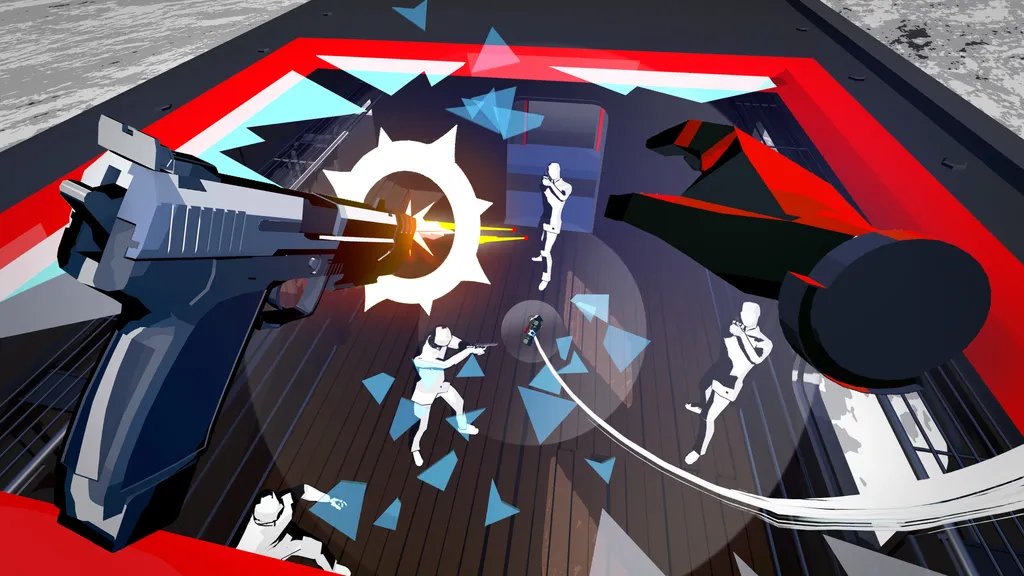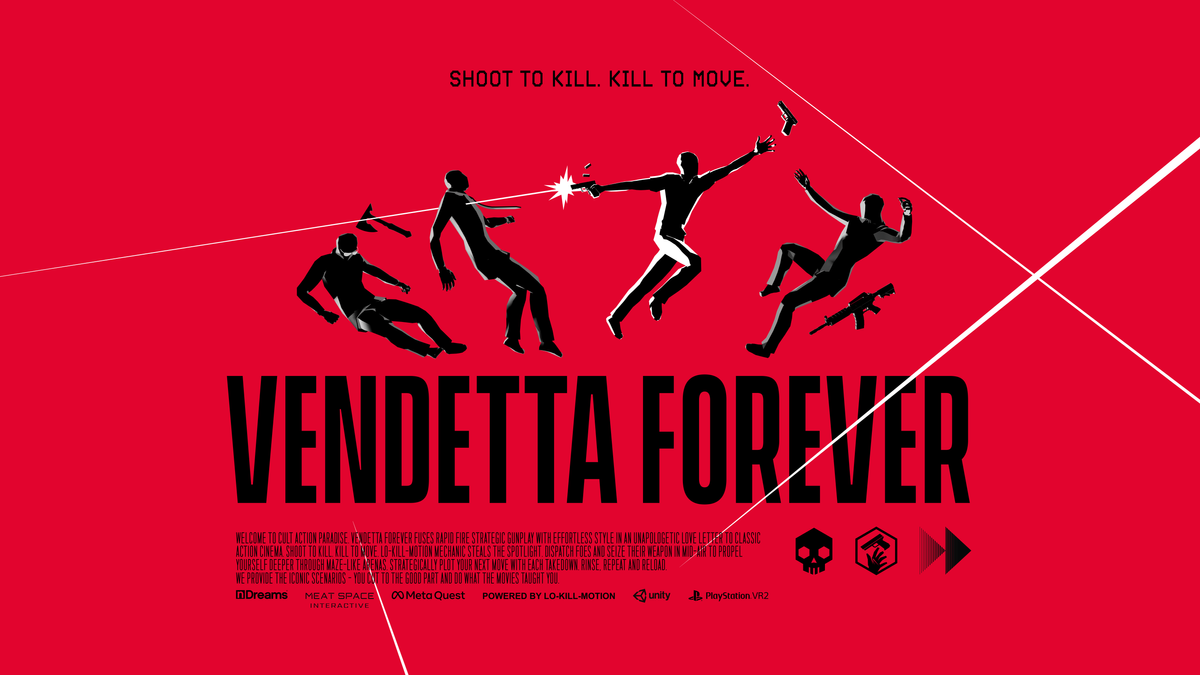Zander Dejah describes one of the Star Wars VR games he worked on as a high fidelity "walking simulator". And so, as he started working on prototypes, he aimed for something completely different.
He calls it "LO-KILL-MOTION".
Vendetta Forever made a splash when the demo appeared in August. Developed by Dejah's Meatspace Interactive, this frenetic puzzle shooter only lets you move by teleporting to enemies you've killed, taking their weapons in the process. That's 'LO-KILL-MOTION', and it's a promising setup. In my recent preview, I said it was "a fitting tribute to these classic action films while doing something uniquely suited to VR, delivering stylishly satisfying action."
Launching next week on Quest and PlayStation VR2, I recently interviewed Dejah over a video call to learn more. As the mostly sole developer - two friends assisted with environmental art and the soundtrack - Vendetta Forever began as a side project. Dejah initially prototyped individual gameplay mechanics and began interrogating ideas for a movement system.
"I thought 'How can I move from point to point in VR without using teleportation with laser pointers or analog stick motion?' Because I'm bored of that. I prototyped this idea of teleporting to where enemies are and switching weapons with them. I built an arena with five guys you can jump between, spending half an hour going in a loop of killing them, stealing weapons, and doing it again."
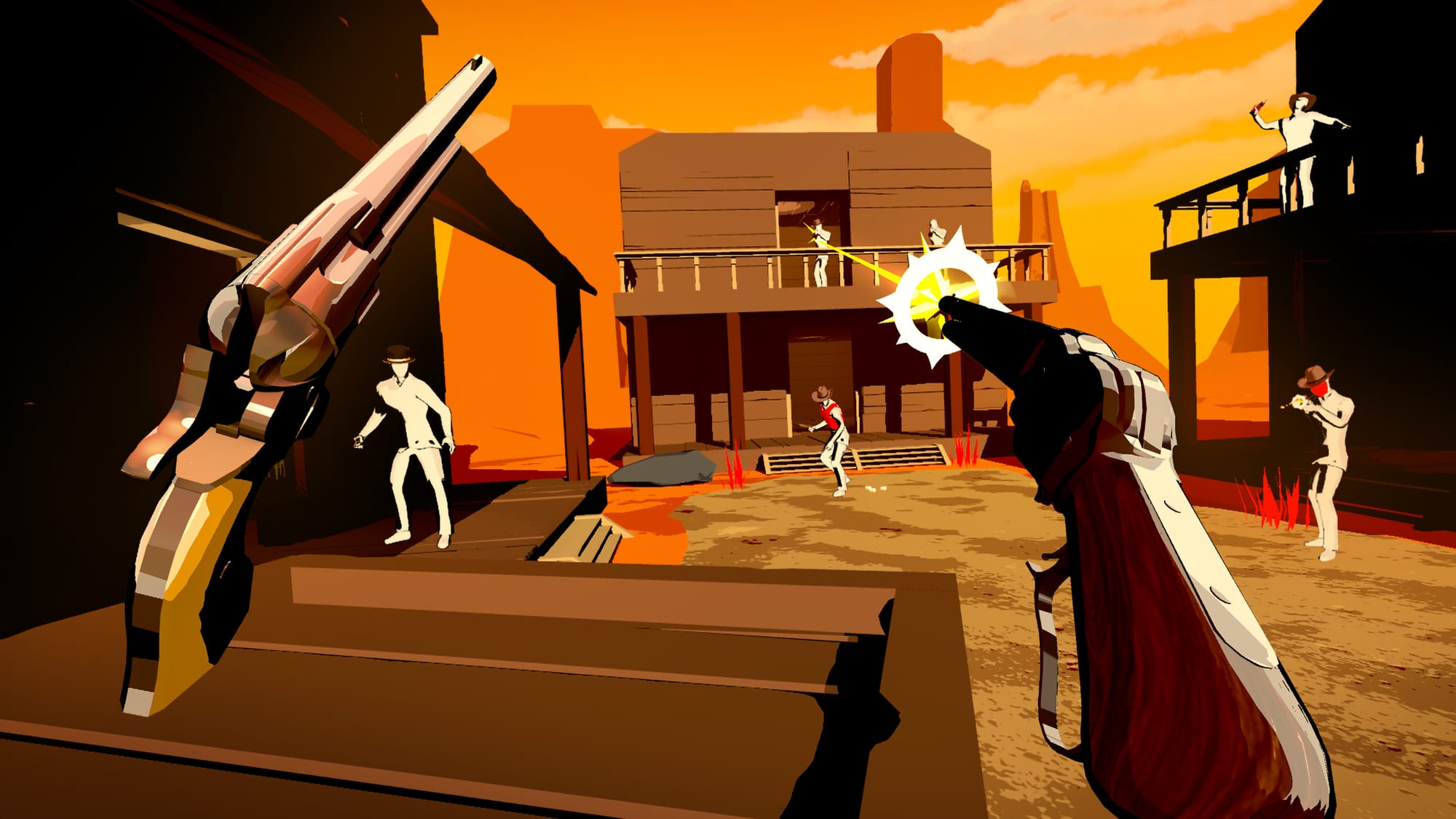
Finding this fun, Dejah began creating small scenarios that utilized this mechanic and began testing ideas for different environments.
"What would be fun to zoom around in, what kind of environments could I go up? fire escapes? Can I go across rooftops? Can I go through alleys? The ideas kept pouring in... The first level I ever did was based on my own kitchen, I had a loose adaptation of its layout. I thought it would be cool to jump over the middle island, go around this corner, down this hallway, and then turn around because there are two guys behind you."
This culminated with a free demo called Bang Bang Slice, which received a positive reception and picked up an audience through SideQuest. Eventually, Dejah was approached by a couple of publishers before agreeing to work with nDreams.
Given the innovative method of moving through VR, I asked how Dejah approached designing so many different quick-fire scenes that rarely last more than a minute.
"If I designed a level that lasted five minutes, oh my god, I would lose focus way too quickly. That's why all the scenes are extremely short and concise. I wanted to deliver a consistent level of energy where it's very intense but has little bumps, ups and downs, and hopefully big finishes on some of them."
This involves condensing the core gameplay down into "the absolute purest" form, and Dejah took inspiration from his favorite action movie scenes.
"What if I was inside Wanted or a Stallone movie? I prototyped several little scenes from those movies, and those grew into kind of completely original levels. I drew inspiration from games, movies, music videos, stuff that's around my house or in my neighborhood. I was on an airplane and I'm like, 'I need to make an airplane level.' I needed to do it."
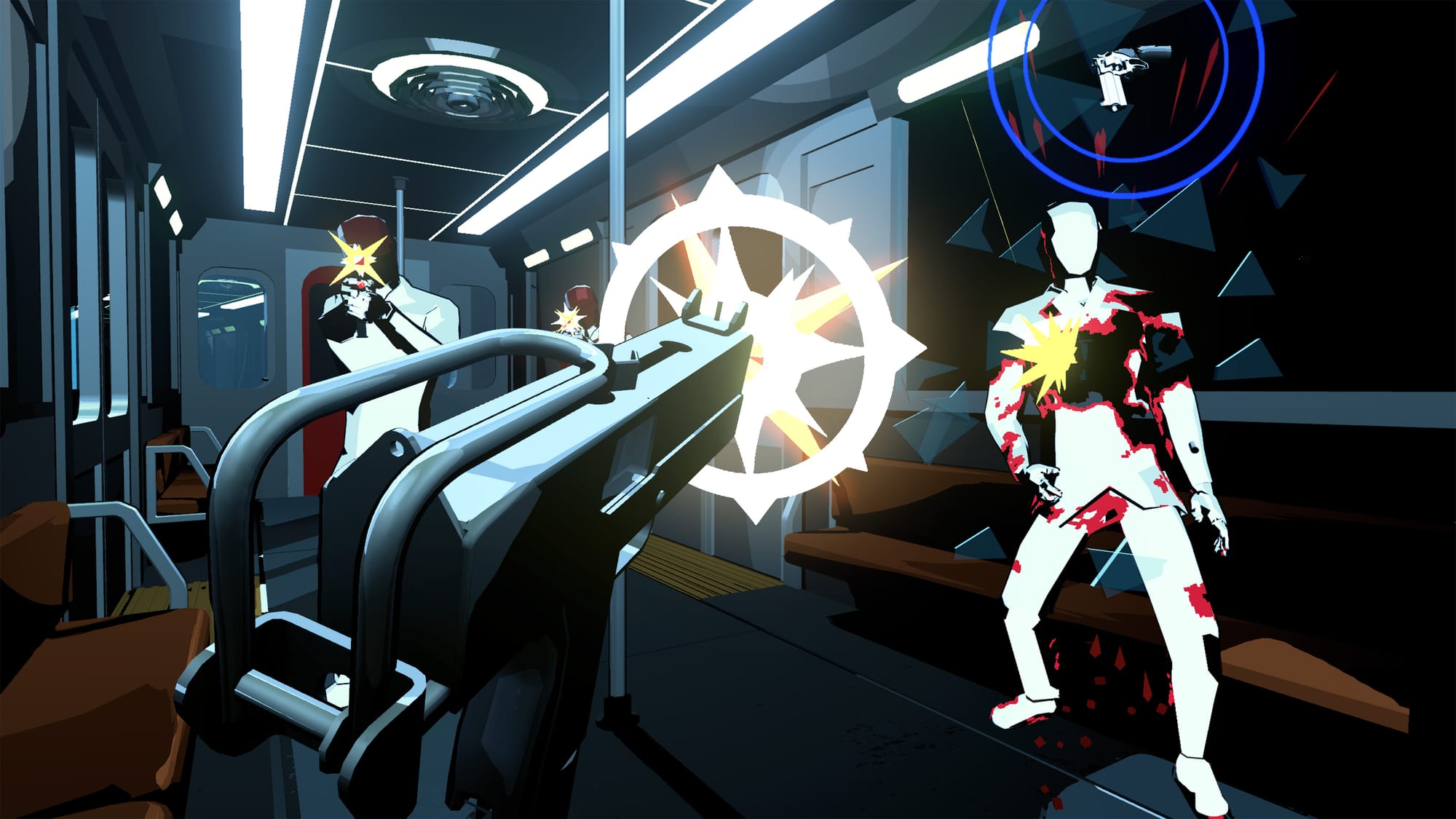
That approach partially involves creating levels that personally challenge Dejah. One Indiana Jones-esque level involved making a VR whip "that didn't feel terrible or too hard to use," while Vendetta Forever's skydiving level uses no geometry at all.
It underlines the minimalist design philosophy at Vendetta Forever's core, which he's followed since the initial prototype. That's why the presentation is visually sparse where possible to focus on the essentials with no dialogue or cutscenes, going straight to the action.
"I don't want you looking around the environment because it's not important. You should only see the enemies in front of you, the weapons you can use, and the next place to go. The levels got a little more "art-ed" up and I think for the better, but the core is still trying to let you focus on your goals, not to be visually overwhelming. Because it's mechanically a bit overwhelming and intense.
"It's a game that I want people to be able to pick up very seamlessly. If they say, 'Hey, I want to play a game for 15-20 minutes of a game because I'm tired and just got off work,' I don't want to boot up a game with a really long loading screen. I want something you can jump into instantly, play as much as you want, and get back out."
Dejah mentions how Vendetta Forever is often compared with Superhot and Pistol Whip, stating how the environments in those games are minimal because it's not the focus.
"Your attention is purely on the only thing that stands out, like the red or orange enemies. That was something I gravitated towards because it's so pure, so mechanically satisfying, that I don't really care what the environment looks like. I can stare at it but it's not offering up bounties of, 'Oh, check out all these little details' that a thousand artists spent millions of hours cultivating so that you can run right past it."
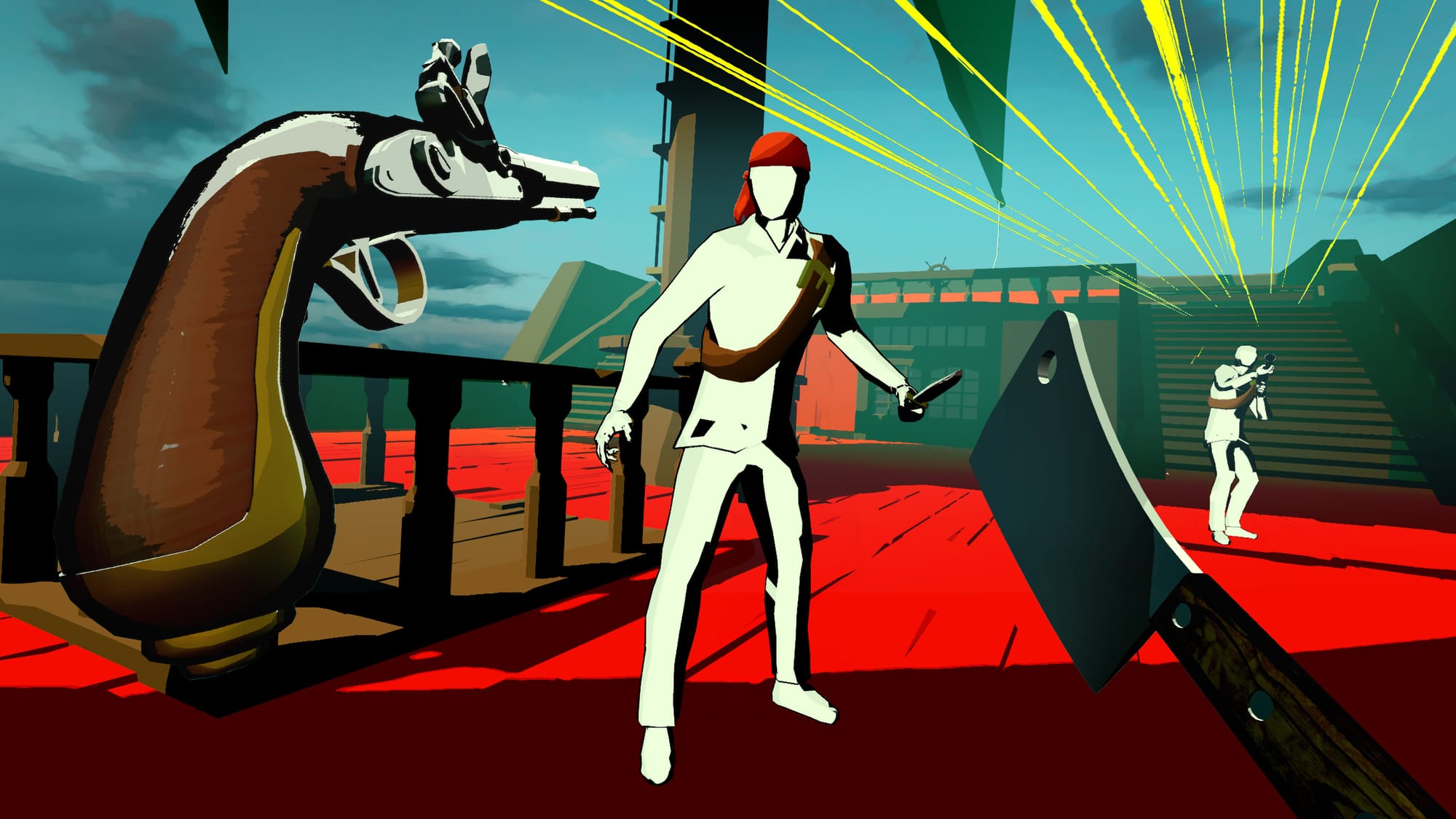
It's an answer to Dejah's issue with modern games, and he believes many spend considerable effort on the presentation when the gameplay isn't getting the same level of investment. After working at ILM Immersive on Vader Immortal and Tales From The Galaxy's Edge, he took lessons from those Star Wars games into his new title.
"It was definitely reactionary, Vendetta Forever is a reaction to working on them. At ILM and Lucasfilm, there's such an emphasis on immaculate graphical fidelity and engaging deep narrative storylines. Vader Immortal is an experience with a pretty compelling narrative but the gameplay was a second thought. The first episode was largely a walking simulator with some really cool story, but there was almost no gameplay. Gameplay was slowly being added throughout the second and third episodes.
"Then in Tales From The Galaxy's Edge, we got more gameplay focus but first things first, it's got to look like Star Wars. It's got to tell a Star Wars story. If it's fun to play is almost an afterthought. I'm not saying the wonderful people I worked with at Lucasfilm didn't care about the gameplay, but the focus was definitely on the narrative and story. After I'd done that for four years, I wanted something with no story at all that was just pure fun."
Dejah states that Vader Immortal's lightsaber dojo was his favorite part of the game, and he's aiming to create a game that's "infinitely replayable." Going off my demo play through, the intent is clearly presented through gameplay modifiers and online leaderboards.
It's also amusing to learn that Dejah's been taken by surprise with some stage scores.
"When I get my own scores beaten, I'm like, 'God, what the hell?' I've got to get back in, I'm like #20 on most of them at best. I have to get back to number one but some of those scores, I don't know how they did that. I've seen a couple of people do speedruns or things in ways that I never even imagined."
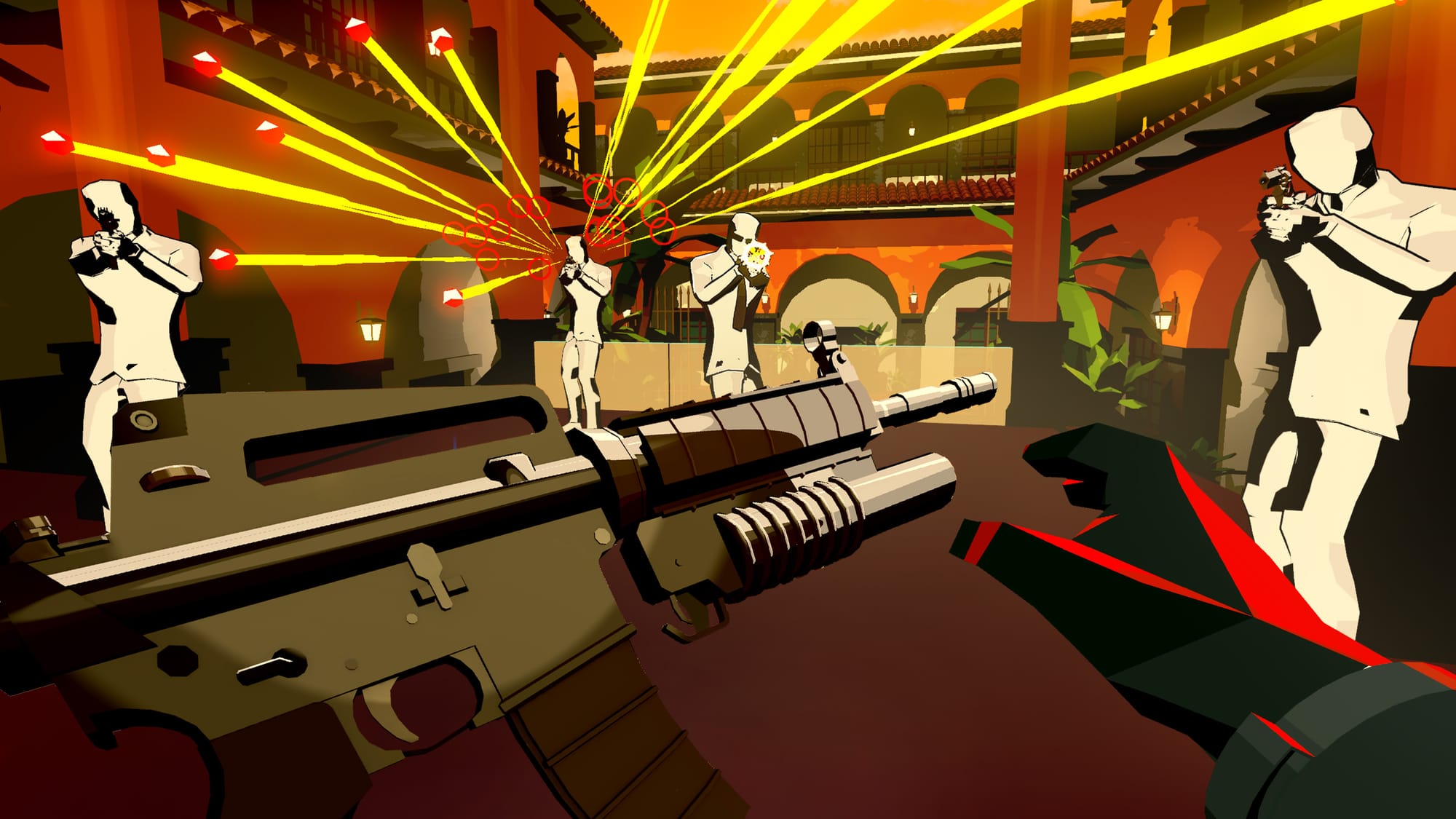
As for platform differences, Vendetta Forever is targeting 90fps on both Quest 2 and Quest 3. You won't find any explicit changes between both versions beyond the dynamic resolution, and Dejah achieved his goal of getting post-processing effects to work on the older headset.
With PlayStation VR2, that port is being handled by VRMonkey and co-founder Pedro Kayatt states it's running at a 90Hz refresh rate. Dejah informed me PS VR2 players will benefit from graphical improvements, adaptive triggers, headset haptic feedback, eye tracking, and real-time shadows.
Is there any chance of a Steam release? The answer isn't no, but "we're going to see how the launch goes."
Vendetta Forever reaches the Meta Quest platform and PlayStation VR2 on October 24. Pre-ordering on Quest unlocks an exclusive bonus level.

